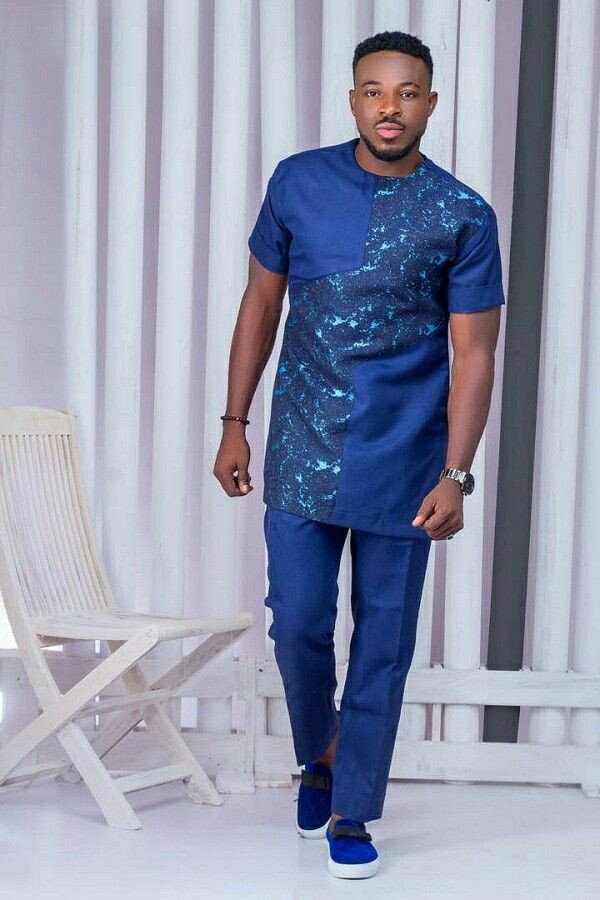Nigerian native attire is more than just clothing; it is a remarkable tapestry of culture, tradition, and identity that reflects the rich heritage of Nigeria's diverse ethnic groups. Each unique garment tells a story, showcasing the artistry, craftsmanship, and values passed down through generations. From the colorful patterns to the intricate embroidery, Nigerian native attire embodies the spirit of the people and their connection to their roots. This attire is not only worn during special occasions but is also a daily expression of pride for many Nigerians.
The beauty of Nigerian native attire lies in its diversity. With over 250 ethnic groups in Nigeria, each group brings its own flair to traditional clothing, resulting in a stunning variety of styles and designs. The attire often varies from one region to another, with each region showcasing its own unique fabric, colors, and patterns. This article will delve into the various aspects of Nigerian native attire, exploring its significance, different styles, and the cultural meanings behind these beautiful garments.
As we journey through the world of Nigerian native attire, we will uncover the stories behind the fabrics and the people who wear them. We will also explore how these traditional garments have evolved over time and how they continue to play a vital role in Nigerian society today. Whether it's a wedding, a festival, or a regular day, Nigerian native attire is a celebration of the country’s rich cultural heritage.
What are the Different Types of Nigerian Native Attire?
Nigerian native attire can be categorized into several distinct styles, each representing various ethnic groups. Some of the most prominent types include:
- Agbada: A flowing robe worn by men, often adorned with intricate embroidery.
- Buba and Iro: A traditional outfit for women consisting of a blouse (buba) and a wrap skirt (iro).
- Dashiki: A colorful garment worn by both men and women, typically featuring vibrant patterns.
- Senegalese Boubou: A long, loose-fitting gown that is popular in Nigeria, particularly among the Yoruba people.
Why is Nigerian Native Attire Important?
Nigerian native attire holds significant cultural importance for several reasons:
- Cultural Identity: It serves as a powerful symbol of ethnic identity and heritage.
- Tradition: Wearing native attire during ceremonies and events reinforces cultural traditions.
- Unity: It fosters a sense of belonging and community among individuals of the same ethnic group.
- Artistic Expression: The vibrant designs and patterns allow for personal expression and creativity.
How Has Nigerian Native Attire Evolved Over Time?
The evolution of Nigerian native attire has been influenced by various factors, including colonization, globalization, and changing social norms. Over the years, traditional designs have been adapted to suit modern tastes while still honoring cultural roots. Contemporary Nigerian fashion designers are blending traditional elements with modern styles, creating a fusion that appeals to younger generations.
Who are the Influential Figures in Nigerian Native Fashion?
Several key figures in the fashion industry have made significant contributions to the promotion and evolution of Nigerian native attire. Their influence has helped elevate traditional clothing to international platforms.
| Name | Biography | Contribution |
|---|---|---|
| Deola Sagoe | A renowned Nigerian fashion designer known for her innovative designs that blend traditional African fabrics with modern styles. | Promoting Nigerian fashion internationally and showcasing the beauty of native attire. |
| Folake Folarin-Coker | Founder of the fashion label Tiffany Amber, which highlights the beauty of Nigerian native attire through contemporary designs. | Combining traditional techniques with modern aesthetics to appeal to a global audience. |
| Lanre Da Silva Ajayi | A celebrated designer who integrates Nigerian heritage into her fashion collections, known for her unique use of colors and fabrics. | Bringing attention to the artistry of Nigerian native attire on international runways. |
What Fabrics Are Commonly Used in Nigerian Native Attire?
The choice of fabric plays a crucial role in the creation of Nigerian native attire. Some common fabrics used include:
- Aso Oke: A traditional handwoven fabric that is often used for ceremonial outfits.
- Ankara: A vibrant cotton fabric with bold patterns, widely popular for both traditional and modern clothing.
- Brocade: A luxurious fabric often used for special occasions, featuring intricate designs.
- Adire: A dyed fabric made by the Yoruba people, known for its unique patterns and designs.
How to Style Nigerian Native Attire for Different Occasions?
Styling Nigerian native attire depends on the occasion. Here are some tips for different events:
- Weddings: Opt for elaborate designs and vibrant colors to stand out.
- Festivals: Embrace traditional patterns and accessories to celebrate your heritage.
- Casual Outings: Choose simpler designs and pair them with modern accessories for a chic look.
- Corporate Events: Select tailored native attire that maintains professionalism while showcasing culture.
What is the Future of Nigerian Native Attire?
The future of Nigerian native attire looks promising as fashion designers continue to innovate while staying true to cultural roots. With the rise of social media and global interest in African fashion, Nigerian native attire is gaining recognition on international platforms. The fusion of traditional and modern styles will likely continue, allowing for a vibrant evolution of this cultural expression.
In conclusion, Nigerian native attire is a significant aspect of the country's culture and identity. With its rich history, diverse styles, and modern adaptations, it remains a beloved expression of pride and heritage for Nigerians. As the world continues to embrace the beauty of Nigerian fashion, the stories woven into every garment will resonate for generations to come.
You Might Also Like
Discovering The Life Of Keith Hodge's WifeUnveiling The Mystery: Who Is Pitbull's Daughter?
Exploring The Cinematic Journey Of Leana Lovings: An In-Depth Look At Her IMDb Profile
Exploring The Enigma Of Jodean Bottom: A Journey Through Her Life And Career
Brightening Your Week: Creative Tuesday Morning Greetings
Article Recommendations


